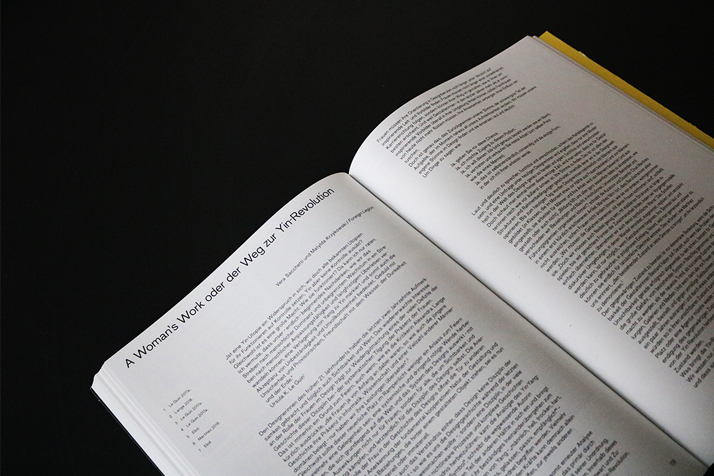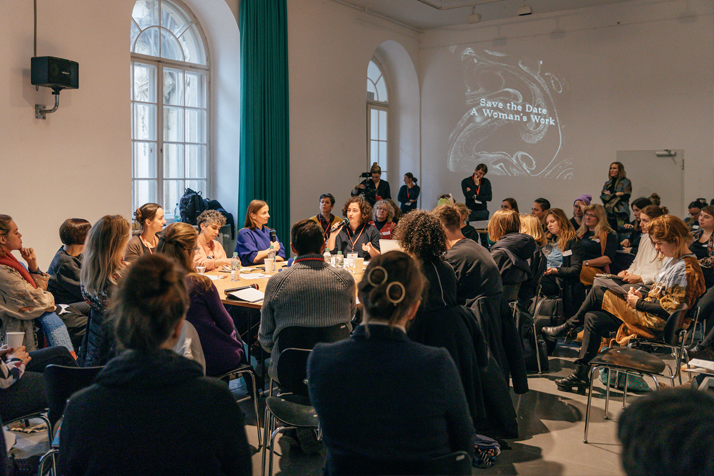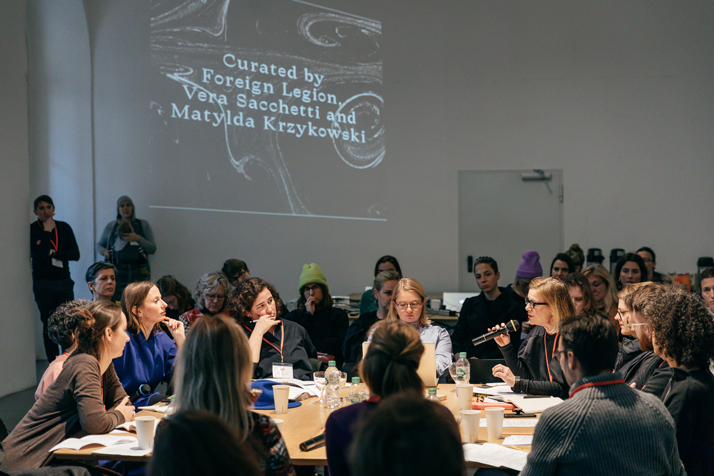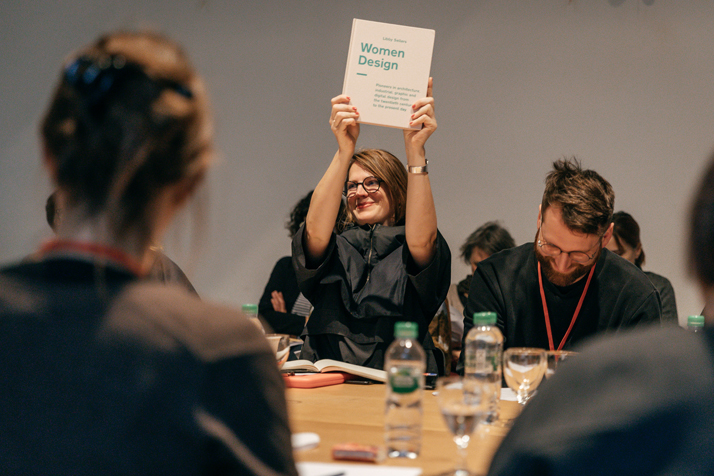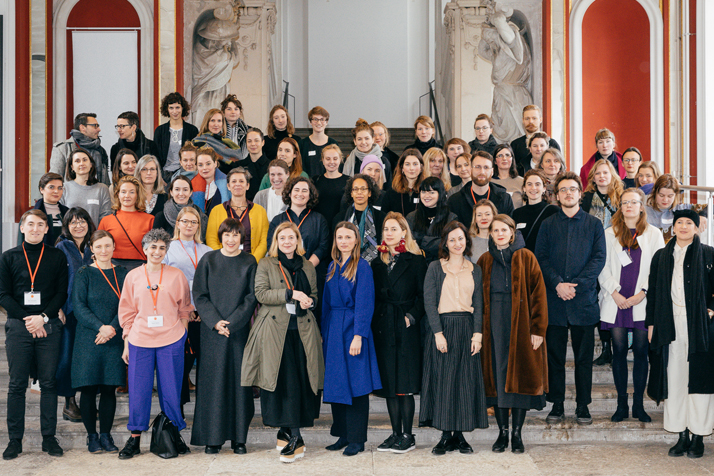Symposium
17 January 2019
Curated by Foreign Legion, Vera Sacchetti and Matylda Krzykowski, Client Kunstgewerbemuseum Dresden
Visual Identity by Andrea Anner, Images by David Pinzer
A Woman’s Work aims to explore the roles, influence and visibility of contemporary female practitioners. Structured in three parts: ‘Advocates of history’,‘Enablers of visibility’ and ‘Dismantlers of existing conditions’, the gathering aims to bring women in and around design, art and architecture to the fore, creating the conditions for their visibility to become a permanent condition. Program Friday, 18 January 2019
- 9:30 – Registration and Coffee
- 10:15 – Introductory Remarks
Matylda Krzykowski and Vera Sacchetti, Foreign Legion - 10:30 – Introduction to “Against Invisibility”
Klara Němečková, curator, Kunstgewerbemuseum Dresden - 10:45 – Part 1 – Advocates of History“Women have always been there”, critic Alexandra Lange has recently noted, “but we have overlooked their contributions.” If design history has been skewed from the start – given the perspective of those who wrote it in the first place – what can be done to rediscover women designers? Advocates of History looks at recent examples of revisited design history, in exhibitions, books, institutions and events, that seek to celebrate female practitioners and their contributions to the fields of design and architecture.
Thomas Geisler, director, Werkraum Bregenzerwald
Annika Frye, designer and Professor of Design Science and Research, Muthesius Kunsthochschule Kiel
Libby Sellers, design historian, consultant and author of Women Design - 12:00 – Lunch Break
- 12:45 – Part 2 – Enablers of Visibility It is not enough that female practitioners do the work – it is also up to those in positions of power to bring their work to the spotlight. How can we make sure that the histories of these designers are written, talked about, broadcast? And how can they be transported from one generation to the next? Enablers of Visibility examines the roles of museums, schools, critics, journalists, and even social media in disseminating the stories of women.
Katrin Greiling, designer and teacher, founder of Studio Greiling
Alice Rawsthorn, design critic and author of Design as an Attitude Antje Stahl, journalist and editor, Neue Zürcher Zeitung - 14:15 – Ritual of Self-Empowerment
Pinar Demirdag, Practitioner and co-founder of Pinar & Viola - 14:30 – Part 3 – Dismantlers of Existing ConditionsEven while pushing for the visibility of the female practitioner, we often fail to recognize our own bias and ingrained behaviours. How can we create frameworks for the visibility of women designers without replicating the same Eurocentric stereotypes, and without overlooking different perspectives and geographies? Dismantlers of Existing Conditions discusses strategies for shifting our perspective, and that of our students, our audiences, and our establishment.
Danah Abdulla, designer, researcher and educator, Brunel University London and Decolonising Design
Christoph Knoth, graphic designer, web developer and professor HFBK Hamburg
Sarah Owens, professor of Visual Communication at Zurich University of the Arts - 15.45 – Roundup and Concluding Remarks
Tulga Beyerle, director, Museums für Kunst und Gewerbe Hamburg
Matylda Krzykowski and Vera Sacchetti, Foreign Legion - 17:00 – Reception
‘No longer need women to navigate the design profession without role models to look up to and be inspired by. No longer have women to conform to any predefined career orientation, designing their paths in whichever way they deem best. And because, in recent years more than ever, women in design can find inspiring examples all around them, the practitioner of today should not have to quiet down their voice, hush away their presence, hide their influence. And yet, it is this reclaiming that is the biggest challenge, one that must take most of our attention right now: finding and using our own voices in design, loud and clear. To say things such as:
Yes, I want that opportunity.
Yes, I want access to that platform.
Yes, give me that job (and pay me as much as you would a man).
Yes, represent and sell my work (for the same price as you will sell a work made by a man).
Yes, this is obvious, necessary, and the only way I will work for you, with you, alongside you.
‘Extract from the essay ‘A Woman’s Work, or, steps towards the yin revolution’ by Foreign Legion for the ‘Against Invisibility exhibition catalogue’ (Gegen die Unsichtbarkeit, Designerinnen der Deutschen Werkstätte Hellerau, 1898 bis 1938, July 2018
